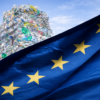When can a company be defined as “virtuous”? When thinking about manufacturing companies, it often happens that the judgment stops at the quality of the finished product. It is not always easy to imagine that a good result in terms of output also depends on the way it is achieved., from the quality of raw materials and production processes. The environmental impact that a company has on the territory (air, water, land) can sometimes be disastrous, if corporate sustainability policies with low ecological impact are not implemented. Fortunately, technological developments have allowed us to find increasingly efficient solutions also in terms of sustainability: solutions that Teamplast has also been implementing for several years and whose results confirm that the company is going in the right direction.
Photovoltaic system, recycling and regenerated plastic: the evolutions of the last 5 years
Analyzing the data of the last 5 years, we have objective confirmation that the efforts made are bringing concrete results especially in terms of energy efficiency and recycling of materials.
One of the highlights is the significant improvement in electricity consumption. Before the installation of the photovoltaic systems in 2019, Teamplast consumed an average of 340,000 KWh of electricity. However, thanks to the adoption of more efficient technologies and the use of renewable energy, such as photovoltaic, consumption was reduced to 260,000 KWh in 2023. This reduction in energy consumption not only helped reduce the environmental impact, but also allowed the company to save on energy costs.
Furthermore, Teamplast has made great progress in the recovery and recycling of plastic materials. In 2019, the company recovered and recycled 42,000 kg of plastic material, while in 2023 this figure increased to 57,000 kg. This significant shift not only helped reduce the amount of waste going to landfill, but also helped reduce dependence on virgin materials and further promote the circular economy.
Teamplast has also increased the purchase of regenerated plastic material. In 2019, the company purchased 18,800 kg of regenerated plastic material, while in 2023 this figure increased to 24,000 kg. This highlights the commitment to supporting the plastics recycling industry and promoting the use of regenerated materials in their production processes.
Having implemented significant improvements in the processes, has resulted in a greater energy efficiency and more responsible management of plastic materials. By adopting increasingly sustainable practices, the company is setting a positive example for the sector, demonstrating that it is possible to reconcile business growth with environmental protection.


![[:it]inquinamento nei mari_teamplast[:]](https://www.teamplast-srl.it/wp-content/uploads/2024/02/Post-Blog-e-social-Teamplast-1080-×-1080-px.png)


